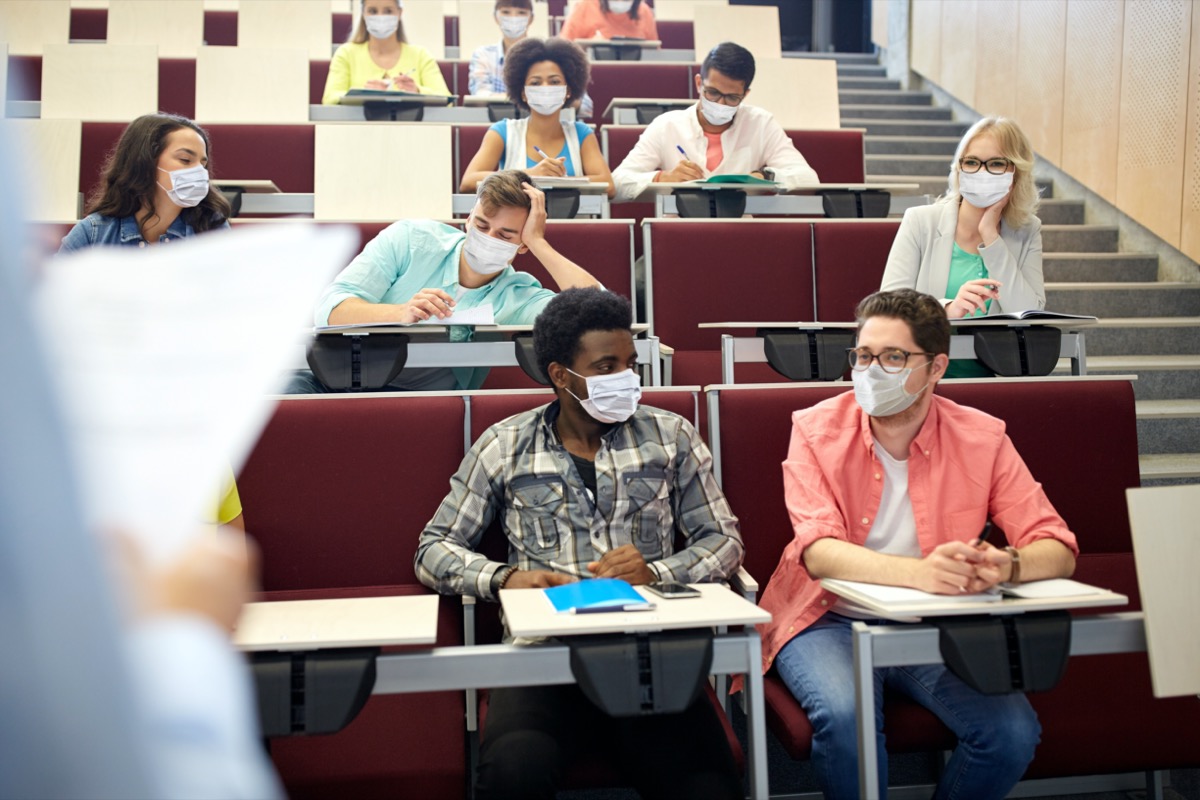According to experts, the return of large numbers of students from all corners of the nation presents an obvious and immediate danger of spreading coronavirus—especially to the smaller towns with less healthcare infrastructure that are home to many large colleges and universities, The Verge reports. And with many of these places welcoming back students to off-campus housing, restaurants, grocery stores, and public services for the first time since the pandemic began in March, the possibilities for new outbreaks are high. Despite the fact that many schools are currently welcoming far fewer students for the new academic year, there’s already evidence that reopenings are having an effect. “What’s really worrisome right now is many college towns are already—even as they just start to repopulate—showing significant evidence of increased transmission,” David Rubin, director of The Children’s Hospital of Pennsylvania (CHOP) PolicyLab, told The Verge. “I’m worried about what I’m already seeing. What happens when they fully repopulate?” According to data from PolicyLab, smaller counties that are home to larger colleges and universities have already begun to stand out in data, with spikes reported in South Bend, Indiana (home of Notre Dame), and Ann Arbor, Michigan (home of the University of Michigan). In fact, a survey conducted by The New York Times found that there were already 6,600 new coronavirus cases that could be linked back to college campuses by the end of July—well before larger numbers of students returned.ae0fcc31ae342fd3a1346ebb1f342fcb RELATED: For more up-to-date information, sign up for our daily newsletter. Certain universities have already been faced with major scheduling decisions, thanks to COVID. The University of North Carolina at Chapel Hill announced on August 17 that it would be moving its classes entirely online for the semester when about 130 students tested positive for the coronavirus after returning to campus. Analysis of testing among 954 students and five faculty members showed a 13.6 percent positivity rate for the virus. Even though most universities are taking precautions by limiting dorm occupancy and class sizes, others point out that there is only so much you can do when smaller cities are taken over by students. “The university does not govern what happens off-campus,” Juan Marquez, medical director in Ann Arbor’s Washtenaw County, told The Verge. “They can only do so much.” And for more on places struggling with COVID, check out This State Is on the Verge of Going Back Into Lockdown, Governor Warns.
